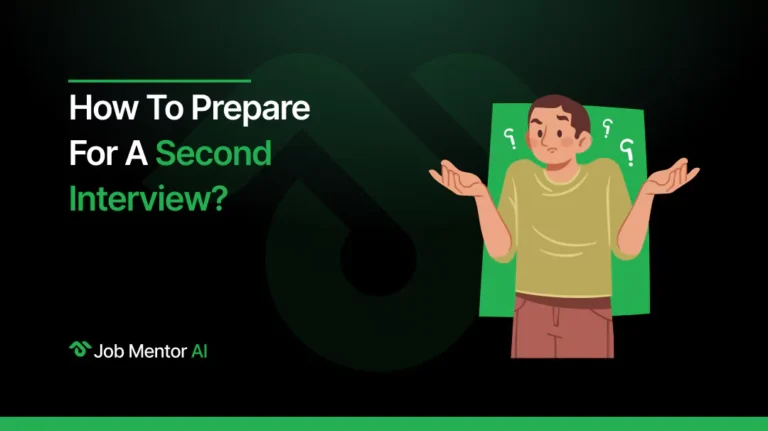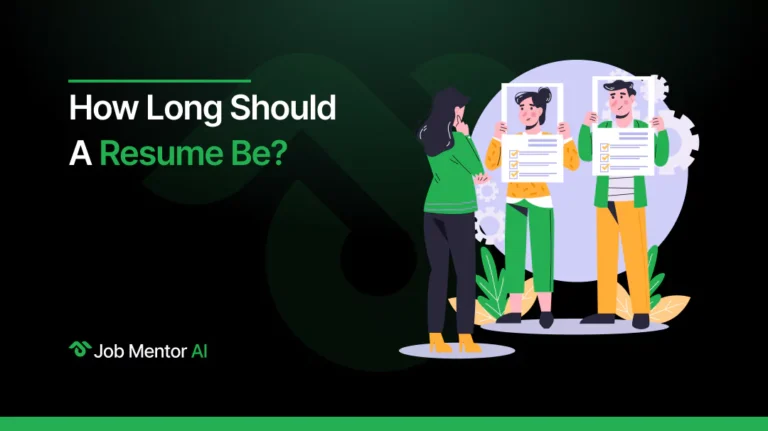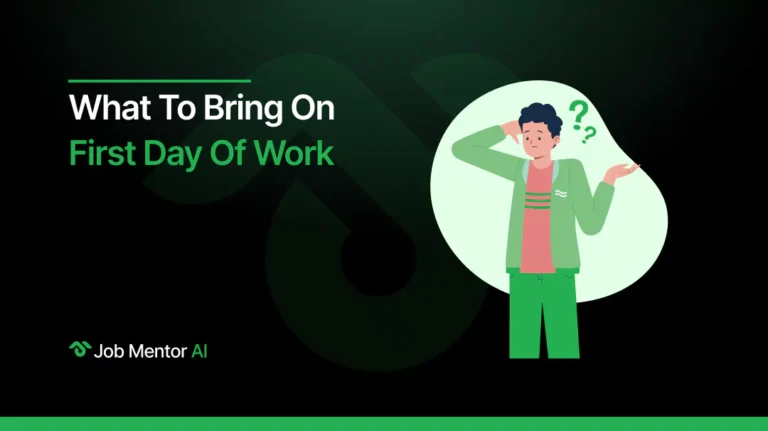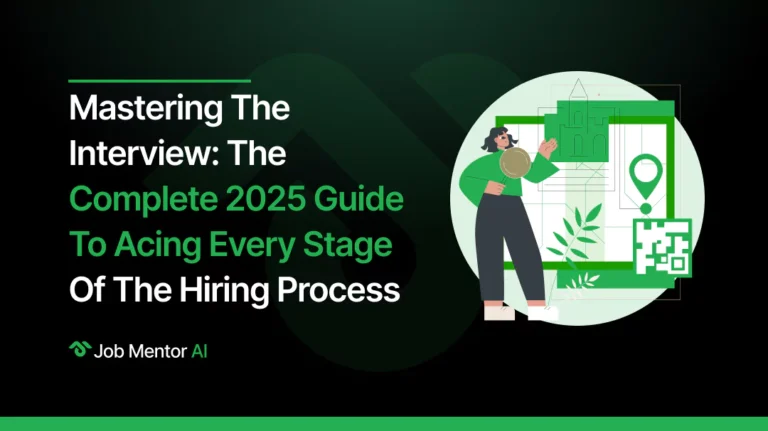How to Make a Great First Impression in a Job Interview: 23 Essential Tips
- Published

A job interview can be a nerve-wracking experience, but it doesn’t have to be. With the right preparation and mindset, you can make a lasting impression on your interviewer and set yourself up for success. Whether it’s your first interview or your tenth, following the best interview tips can help you stand out from the competition.
In this post, we’ll explore 23 essential job interview tips that can boost your confidence and help you make the best possible impression. We’ll break them down into three sections: Before the Interview, Interview Day, and After the Interview, to guide you through every step of the process.
Before the Interview
Preparing for an interview starts long before you walk into the interview room. How well you prepare can significantly impact the impression you make on your potential employer.
1. Research the Company
Take the time to research the company and its culture. Understanding their values, products, and services will allow you to tailor your answers and show the interviewer that you are genuinely interested in the role.
2. Review the Job Description
Make sure you understand the responsibilities of the job and how your skills align with the role. Be ready to demonstrate how your experience matches their needs.
3. Use the STAR Method
The STAR method is a great way to answer behavioural interview questions, helping you stay clear and concise. STAR stands for:
- Situation: Briefly describe the context.
- Task: Explain the challenge or responsibility.
- Action: Detail the steps you took.
- Result: Share the positive outcome.
4. Practice Common Interview Questions
While you can’t predict every question, practicing answers to common interview questions will help you feel more confident. Consider AI Interview Assistant to practice and make you feel more confident. This can simulate real-life interview scenarios and provide feedback on your responses.
5. Prepare Your Own Questions
An interview is a two-way conversation, so prepare thoughtful questions to ask the interviewer. This shows your interest in the role and helps you assess if the company is the right fit for you. Asking good questions also demonstrates your preparation and enthusiasm for the opportunity.
6. Plan Your Outfit
Your appearance plays a key role in making a positive first impression. Select an outfit that is professional and aligns with the company culture. Make sure your clothes are clean, well-fitted, and appropriate for the industry. Dressing thoughtfully shows respect for the company and boosts your confidence, allowing you to focus on the interview itself.
7. Prepare smart questions for your interviewers
One of the best ways to make a positive impression is to show that you’re genuinely interested in the company and the role you’re applying for. One way to do this is by preparing thoughtful, smart questions for your interviewers.
- Can You Tell Me About the Team I’d Be Working With?
- How Does the Team Usually Collaborate on Projects?
- How Would You Describe the Company Culture?
- How Often Do Employees Receive Feedback on Their Work?
- What Is the Process for Performance Evaluations?
- What Are the Next Steps in the Hiring Process?
8. Practice with a Friend or AI Mock Interview Practice
Rehearsing with a friend can help you refine your responses, but you can also consider using AI Mock Interview Practice to simulate a more realistic scenario. These tools provide instant feedback, allowing you to adjust your answers before the big day.
Interview Day
When the day arrives, you want to be fully prepared and in the right mindset. Here’s how you can make a great first impression on the actual day.
9. Arrive Early
Arriving early shows punctuality and eagerness. Aim to arrive at least 10-15 minutes before the scheduled interview time. This gives you time to settle in and mentally prepare.
10. Make a Great First Impression
Arrive on time, dress appropriately, and greet your interviewer with confidence. Be prepared, listen actively, and show enthusiasm for the role. A positive attitude and thoughtful questions will leave a lasting impression.
11. Show Confidence (But Don’t Overdo It)
Confidence is key, but there’s no need to come across as arrogant. Show that you believe in your abilities, but remain humble and open to feedback.
12. Listen Carefully
Pay attention to the questions being asked and take a moment to think before answering. Thoughtful, well-considered responses will leave a better impression than rushed ones.
13. Tie Responses to Your Skills and Achievements
When answering interview questions, connect your responses to your key skills and past accomplishments. Instead of just stating your strengths, share specific examples of how you’ve successfully used them.
For example, if asked about teamwork, mention a situation where you collaborated with others to achieve a goal. This shows you can apply your skills effectively and have a proven track record of success.
14. Show Enthusiasm
Demonstrate enthusiasm for the position and the company. Employers want to hire candidates who are genuinely interested in the role. Speak positively about the company and highlight why you’re excited about the opportunity.
15. Use Your Strengths
When talking about your experience, focus on your strengths and how they relate to the job. Back up your claims with specific examples to show how your skills will benefit the company.
16. Stay Calm Under Pressure
It’s normal to feel nervous, but try to stay calm if faced with difficult questions. If you don’t know an answer, it’s okay to take a moment and think it through.
Read More: 10 Most Needed Last Minute Interview Tips: Stay Calm and Confident
17. Be Honest
If you don’t have experience in a specific area, be honest about it. Focus on how your other skills can help you quickly learn the required skills.
After the Interview
What you do after the interview is just as important as the preparation and performance during the interview itself.
18. Ask about next steps
Once the interview is over, it’s important to leave with a clear understanding of what happens next. Before you wrap up, politely ask the interviewer about the next steps in the hiring process. This shows that you’re still interested and eager to continue in the process.
You could ask questions like:
- “What are the next steps after today’s interview?”
- “When can I expect to hear back regarding the outcome?”
- “Will there be additional interviews or assessments?”
19. Send a Thank-You Note
Sending a brief, polite thank-you note within 24 hours of the interview shows appreciation for the opportunity and reaffirms your interest in the position.
20. Reflect on Your Performance
Take some time to reflect on how the interview went. What did you do well? What could you improve next time? This self-reflection will help you prepare for future interviews.
21. Follow Up
If you haven’t heard back after the timeframe given by the interviewer, don’t hesitate to send a gentle follow-up email. This shows your continued interest in the role.
22. Stay Positive
Regardless of the outcome, stay positive. If you didn’t get the job, use it as a learning experience to improve your performance for future interviews.
23. Keep Practicing with AI Live Assist
Even after your interview, continue practicing with AI Live Interview Assist. This tool allows you to simulate real interview scenarios, helping you prepare and refine your responses for future interviews by providing realistic, interactive practice.
Conclusion
Making a great first impression in a job interview is all about being prepared, staying calm, and showing confidence. By doing your research, practicing answers, and being genuinely interested in the role, you’ll set yourself up for success. Remember to stay positive, be yourself, and always follow up after the interview. With these simple tips, you’ll feel ready and confident to impress any interviewer!
Table of Contents
Frequently Asked Questions
What are five good first impression tips?
Five good first impressions tips are:
- Be punctual.
- Dress appropriately.
- Offer a confident handshake and smile.
- Maintain good posture.
- Be polite and attentive during the conversation.
Why should we hire you?
Highlight your relevant skills, experience, and enthusiasm for the role. Show how you can add value to the company and align with their goals.
Which skill is best for an interview?
Communication skills are key. Being clear, confident, and concise in your responses makes a big impact in interviews.
What is the STAR method?
The STAR method is a way to answer behavioral interview questions:
Situation, Task, Action, Result. It helps you provide structured and clear examples.
How to give perfect interview answers every time?
Be prepared, stay calm, listen carefully, and structure your answers clearly. Using methods like STAR and relating your answers to skills and achievements can also help.






